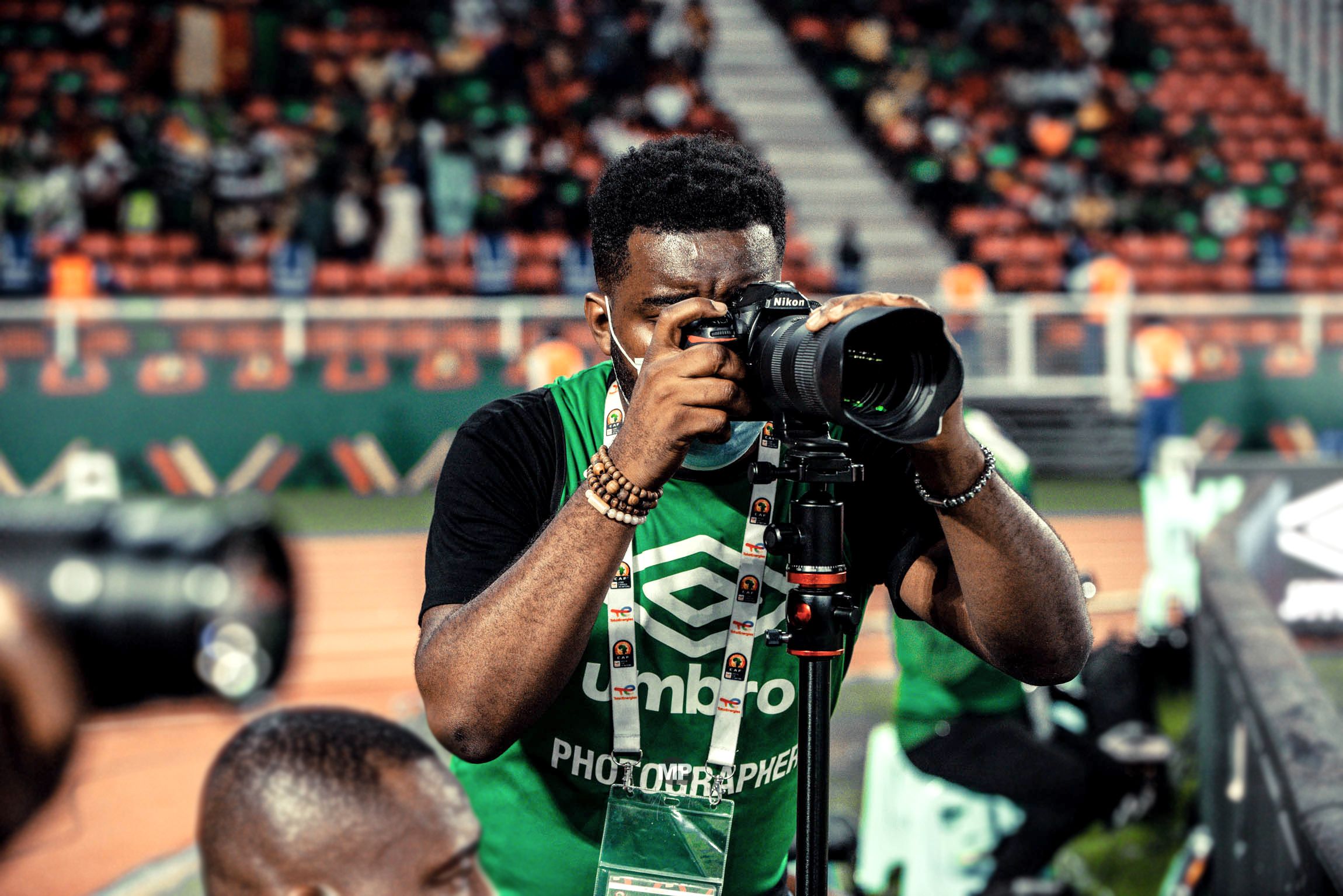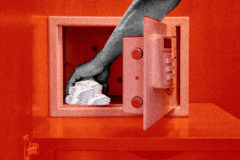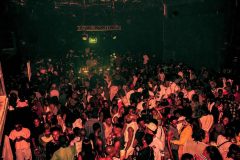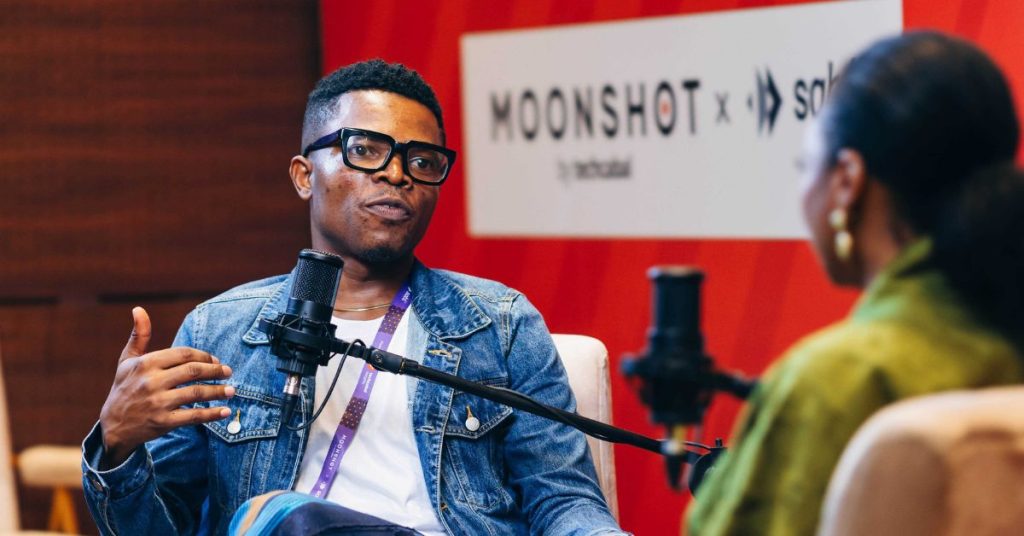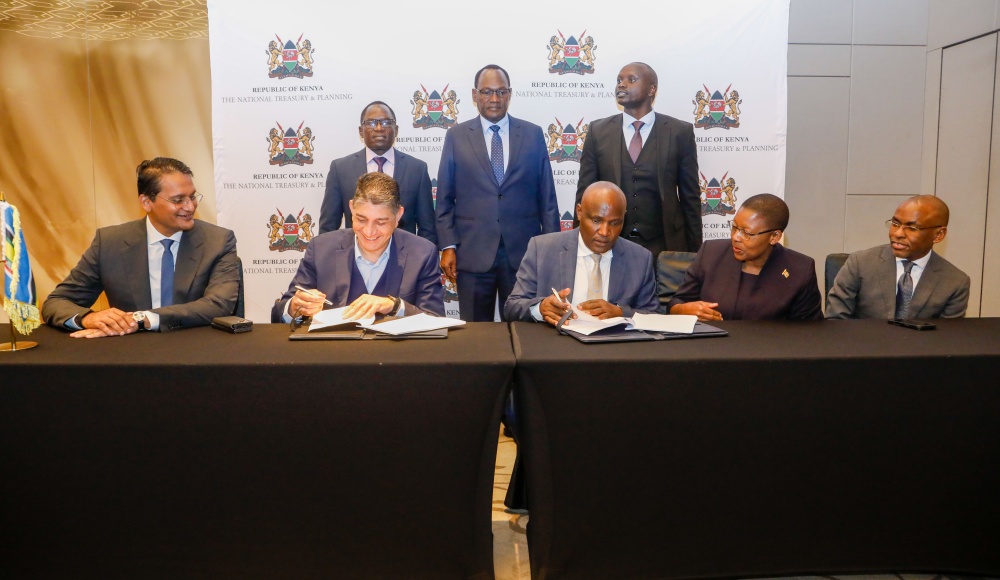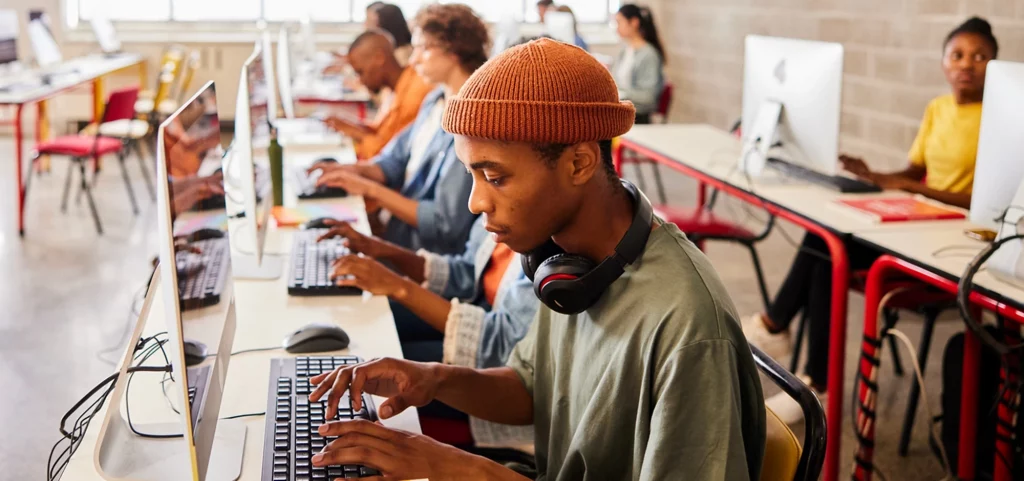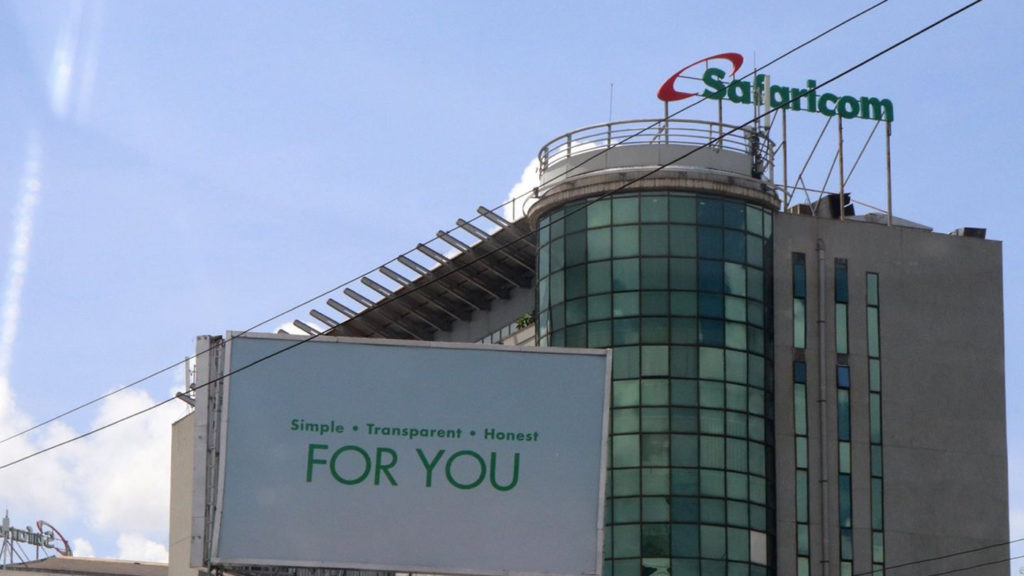As the African Cup of Nation (Afcon) fiesta rages in Cameroon, a young photographer is positioned to make a name for himself. The moment comes but his accreditation doesn’t. What next? The making of a viral photographer.
This article was contributed to TechCabal by Patrick Nelle (bird story agency)
The crowd’s roar is taking eardrums in the stadium to the point of bursting. Colourful and exuberant football lovers have packed the 60,000 seat arena and now they are screaming, shouting, singing, dancing and enjoying themselves as legendary Congolese rhumba hit-maker Fally Ipupa belts out a crowd-pleaser.
The sky is bright over the Olembe stadium in Yaoundé, Cameroon’s capital city, where the 33rd Africa Cup of Nations is opening on a memorable and vibrant show. Standing near the pitch, a young man is looking on. In a few minutes, he will be triggering his camera, producing incredible shots that will go viral and bring him fame. This is the power of Afcon, Africa’s biggest regular footballing event.
The 28-year old Cameroonian in the crowd is Didier Lefa, a wedding and event photographer who spent two years in the run-up to Cameroon’s African Cup of Nations event preparing to break into sports and freelance photography. He upgraded his gear with a new lens and other state-of-the-art equipment to ensure quick delivery of his photos. He’s still bemused at how he has found himself in the crowd and worried that he has somehow messed up. He needn’t worry. He’s minutes away from being one of the most-watched photographers on the continent.
Only a few hours before the beginning of the competition, Didier’s dream was on the verge of collapse. After two years of preparation, a crucial element was missing
“I hadn’t received my accreditation yet,” he explained. He had not yet been granted accreditation from the CAF, the Confederation of Africa Football. The accreditation document gives journalists and photographers the right to access stadiums and venues where the Afcon takes place.
“Without it, I couldn’t do anything. I was totally discouraged. My morale was at its lowest, all of my efforts had been in vain”, he said in an interview.
Had his aunt—who is a sports photographer—not woken him up in the early hours of that Sunday morning, he would have stayed home and watched the fiesta on TV.
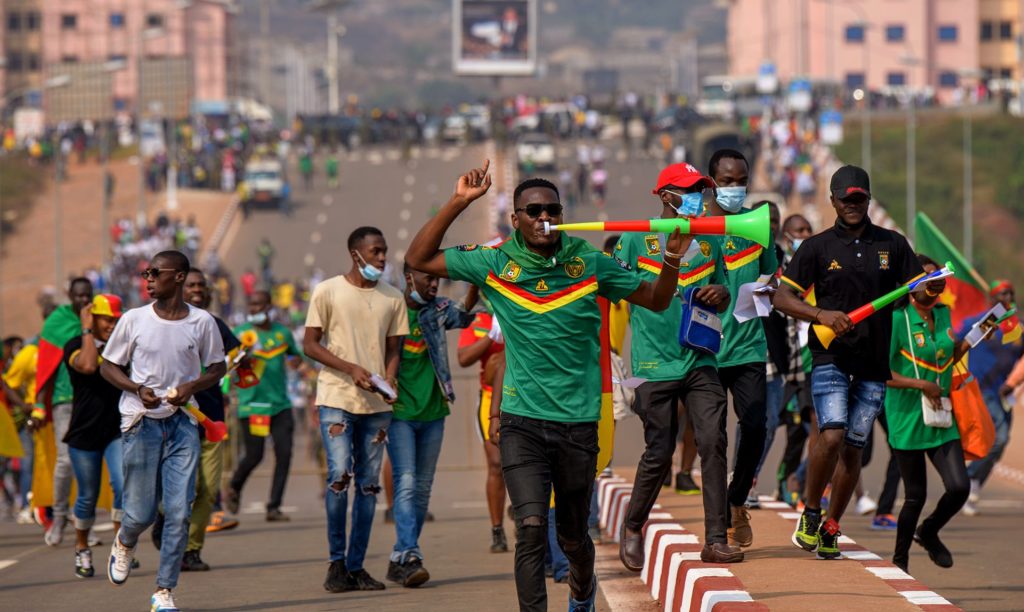
“Accreditation or not, be there”, she told him. He argued but finally bowed to her harsh insistence.
“She took me to the stadium at 7 am”, he said.
He recalled that he was wondering why she was taking him there so early in the morning. The opening ceremony was set to start only at 2.00 pm. He would soon discover why.
“The stadium’s gates were still closed, but the place around was already overcrowded, everyone was already in a joyful mood, the Afcon fiesta had already started. Ten hours before the game kick-off, it looked like we were late”, he remembered.
He pulled his camera out of his bag and started to shoot. He and his aunt were the only photographers on the site, and being there gave him a renewed energy, Lefa said.
“I took pictures frantically. I captured images of football fans undergoing their covid-19 tests and being vaccinated. I posted them on Twitter, and they went viral. Every picture I was posting was going viral, it was amazing.”
Amid the excitement of his work going viral, Lefa was still worried about his accreditation. He still didn’t know if he would finally be able to enter the stadium. Once again, his aunt came to his rescue.
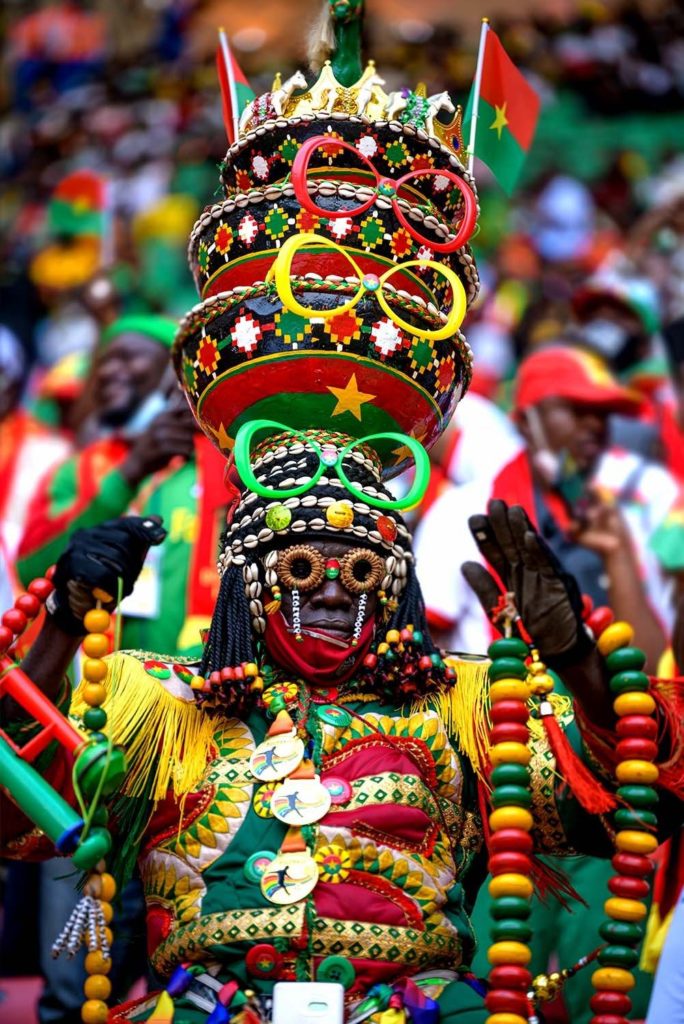
“I don’t know how she managed to do that, she just said ‘don’t worry, follow me’ which I did, and I found myself inside the stadium. It was an awful wait,” he said.
More than 4 hours into a non-stop filming spree, he was starting to feel tired, but being near the pitch and a few meters from the players provided an energy boost. He excitedly shot joyful fans screaming in the stands, game action and players’ prowess on the field, streaming to social media with a flow of powerful and vivid pictures, all of them going viral, one after another.
And at 11 pm, totally exhausted, someone called him on the phone. “Your accreditation is ready, come and collect it” said the voice.
Feedback on his Twitter profile showed how his pictures had struck a chord with an audience.
“There is real life in his pictures, when I saw them, I really felt like I was there at Olembe enjoying with the other fans,” said Bernadette, on why she became one of Lefa’s more than 130,000 Twitter followers.
“Our country is mired in crisis, and I think his pictures are keeping hope alive and helping us believe that despite the crisis, we still have the potential to achieve big things,” Onana, another Lefa fan, added.
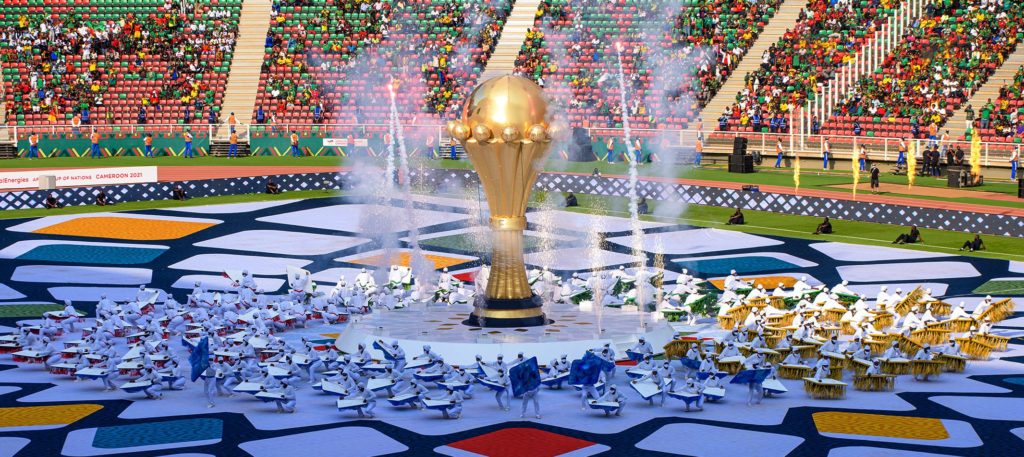
Lefa made photography his profession just 4 years ago, resisting the demands of his father who wanted to veto his career choice. His mother, however, defended her son’s decision and such was his determination that finally won his father over too. The family supported his passion and career orientation to the extent that they financed a $2,000 professional camera.
It’s that very camera that is now producing memorable pictures of one of the most important moments in his country’s modern history—capturing the raw emotion, the life and beauty of a moment in time.
His passion for photography came at an early age, he said, when he discovered photography through his aunt.
“I‘ve always liked to take pictures”.
He recalled that one day his aunt took him to an orphanage for a photo report.
“She gave me a Nikon reflex camera, it was my very first experience with that kind of camera. She told me ‘just take pictures’ which I did. This is how it all started.”
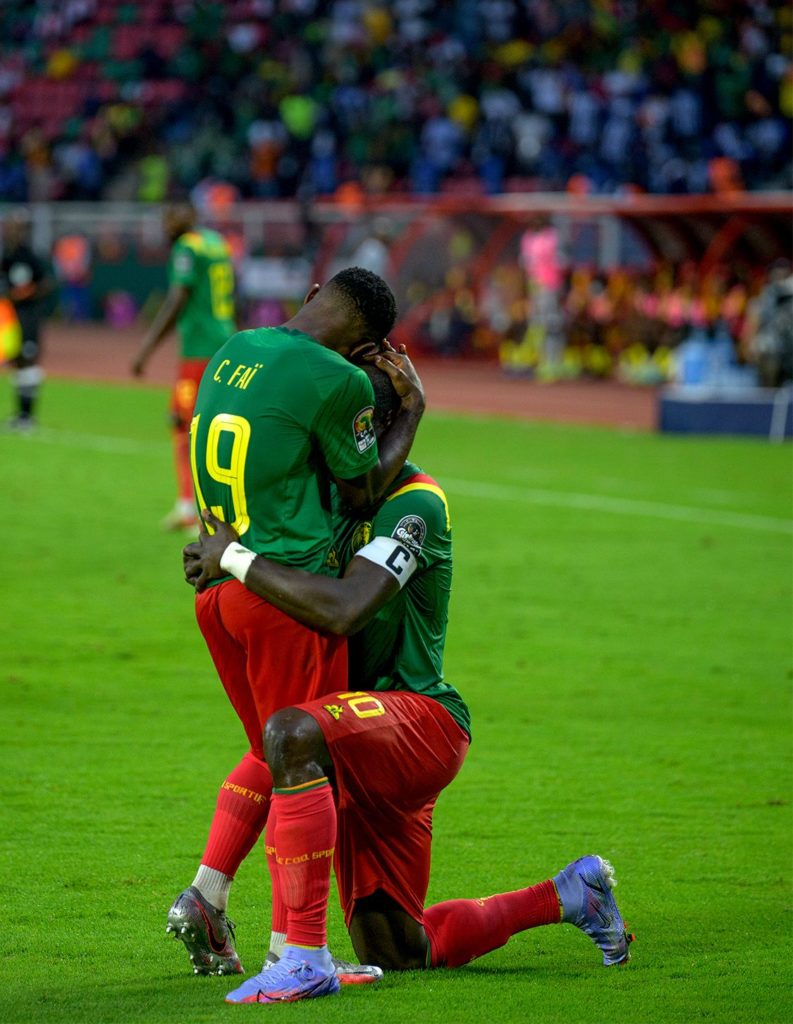
Lefa believes that in Cameroon photographers do not receive the social credit they deserve for their job. For example, he explained, many media organisations across Africa “loot” pictures on the internet and use them without the permission of the owner and without respect to copyright principles.
He had exactly that issue with a local Cameroonian newspaper that took one of his Afcon images directly off Twitter to use for content illustration, without citing him as the author. He denounced the move on his Twitter feed, sparking an online mobilisation against the media, leading the offending organisation to apologize.
Lefa didn’t slow down after that first viral photo. Throughout the tournament, he traveled from one town to another, passionately capturing the essence of each Afcon game. He agreed to a bird interview during a short transit in Douala from Yaoundé, on his way to Limbe where he was to cover the game between Ivory Coast and Algeria.
With a burning desire to embrace new challenges, Lefa was already looking ahead. His current experience has allowed him to build connections with foreign photographers and to enter partnerships with some media like RTI, the Ivory Coast public broadcaster.
His next “big thing” will be the football World Cup next November in Qatar, he said.




